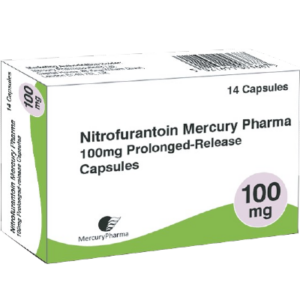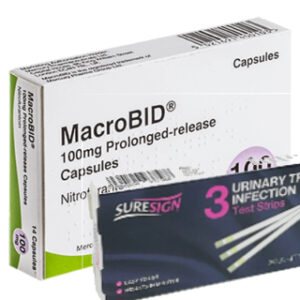Cystitis - Prescription Treatments
Cystitis is a common type of lower urinary tract infection, otherwise known as a water infection, that causes a painful stinging sensation upon urination. You can get a prescription for cystitis online using our free consultation service.
By purchasing your cystitis prescriptions online via My Pharmacy, you can receive your cystitis prescription medication safely and discreetly straight to your doorstep. You can also purchase cystitis non prescription treatment products if you feel a cystitis antibiotics prescription may not be for you, such as Cystopurin.
Women who are prone to continuous cystitis infections should inform their GP instead of buying a cystitis antibiotics prescription online.

-

Nitrofurantoin Mercury Pharma 100mg – 6 Capsules
- Antibiotic To Treat Urinary Tract, Kidney And Bladder Infections
- Active Ingredient: Nitrofurantoin 100mg
- 3-Day Antibiotic Course
£21.49 Select options -

Trimethoprim 200mg Antibiotic Tablets (recommended treatment now Nitrofurantoin/ Macrobid caps)
- Recommended treatment for UTI or Cystitis is now Nitrofurantoin 100mg MR capsules.
- Relief From Cystitis And Urinary Tract Infections
- Active Ingredient: Trimethoprim
£24.49 Select options -

Nitrofurantoin 100mg MR (6 Capsules) & Suresign Urine Test Strips Bundle
- Easy to use urinary infection test
- Nitrofurantoin antibiotic resolves infection after 3 days
- Active Ingredient: MacroBID
£4.49 – £21.49 Select options












